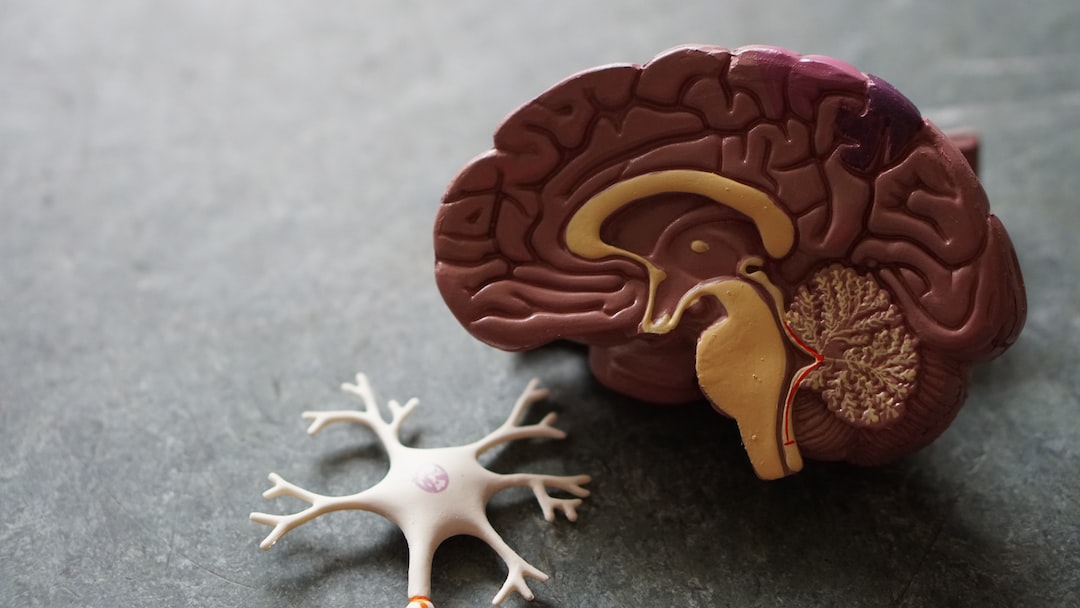Eye Movement Desensitization and Reprocessing
EMDR
Evidence-Based Trauma Treatment
| Weekly or Intensive Options |
“Trauma is re-experiencing in the present, not as a story, but as profoundly disturbing physical sensations and emotions that may not be consciously associated with memories of past trauma."
Bessel van der Kolk
EMDR Therapy
1.) Trauma + the Brain
When a distressing event happens, our brain is usually very effective at storing the information in a way that we can learn from it. However, in some situations, we get the feeling that memories, events, images, or other sensations get “stuck” in our body. Like an invisible splinter in the skin or a burr in a pant leg, these “stuck” memories can become triggers, causing us to experience the event as it is happening again in the present time. When this happens, it is confusing, distressing, and frustrating.


EMDR Therapy
2.) The Treatment
EMDR (Eye Movement Desensitization and Reprocessing) is a therapeutic modality that helps clients process these recurring disturbances in memory and difficulties with emotional regulation. Originally developed as an evidence-based treatment for PTSD, research is now showing its effectiveness for a variety of conditions such as depression, OCD, anxiety, addiction, chronic pain, ongoing stressful situations, recent traumatic events, and other distressing experiences. During treatment, therapists ask their clients to focus briefly on an image, body sensation, memory, or feeling, while simultaneously administering bilateral stimulation (usually eye movements).
EMDR Therapy
3.) Healing
This process prompts the brain to do what it already knows to do, which is to digest these previously distressing pieces of information in a more adpative way. This process lowers the level of the disturbance for clients, and though they remember the event, they experience it in a very different way. Clients report a wide variety of positive outcomes like relief, deeper healing and a sense of freedom through doing EMDR.

“EMDR gives the brain a second chance to reprocess the traumatic memory, thus transforming it into an adaptive resolution.”
Esly Regina Carvalho
EMDR Services
Consider which EMDR option would be best for your needs:
-
3 or 6 Month Package
A paced and steady approach to EMDR, similar to traditional therapy sessions where healing builds week after week
-
Intensives
A condensed, intensive approach to EMDR, allowing you dedicated time to make significant progress in your healing
"world-altering is an understatement"
"To say that going through EMDR sessions with Luke were world-altering for me is not an understatement. As someone who hides experiences behind humor or anger, processing these experiences in a way that focuses on moving into and through the body's experience in a safe, compassionate environment has been such a transformative experience in my healing journey. Each session brought so many emotions and parts to the forefront to be held with compassion and affirmation rather than judgment. The journey through each experience was very difficult, but each time came with such a huge feeling of weight being lifted from my heart. As someone who had no language for true self-love or compassion, I look forward to continuing to live a brighter life with ongoing permissions not to carry all of these weights with me. I am and will be more grateful than I could ever put into words for Luke walking through these intense memories with me and helping me apply life-changing long-term practices to my life."

Conditions EMDR Treats:
-
PTSD and C-PTSD, chronic stress and distress
-
Anxiety disorders such as general anxiety, panic attacks, agoraphobia, OCD, specific phobias, social anxiety
-
Chronic illness, chronic pain and medical trauma
-
Depression, bipolar, dissociative disorders
-
Eating disorders, substance abuse and addiction
-
Recovery from abuse, violence and sexual assault
| Virtual or In-Person |
3-6 Month EMDR Package
Weekly 50-minute therapy sessions with an EMDR trained mental health practitioner
-
3-6 months EMDR package
EMDR 3 or 6 month packages allow you the time and space to develop a safe connection with an EMDR-trained practitioner, establish a treatment plan, and cultivate internal resources as you embark on the EMDR journey together
-
Extensively researched and effective trauma therapy
For those who are ready to stop being so impacted by the effects of trauma on their mind and body, and want to address it on a physiological level
-
When is EMDR a good option for healing?
- Client has experienced shock trauma or developmental/complex trauma
- Is open to the process of EMDR
- Has one or more of the conditions/concerns that EMDR is indicated for
- Possibly the client has done other healing work, but has persistent distress in certain areas
How long does it take?
"For a single trauma, reprocessing is generally accomplished within three sessions. If it takes longer, you should see some improvement within that time." (EMDRIA.org) For complex and developmental trauma, you should expect longer, while still being encouraged by the progress you are experiencing in the meantime. While results can be seen more quickly with EMDR, speed is not the goal, rather attuning well to the needs of each individual client is always our aim.
Is EMDR effective?
"Eye Movement Desensitization and Reprocessing (EMDR) therapy is an extensively researched, effective psychotherapy method proven to help people recover from trauma and PTSD symptoms.
More than 7 million people have been treated successfully by 110,000 therapists in 130 countries since 2016.
The American Psychiatric Association, the American Psychological Association, the International Society for Traumatic Stress Studies, the National Alliance on Mental Illness, the Substance Abuse and Mental Health Services Administration, the U.K. National Institute for Health and Care Excellence, the U.S. Dept. of Veterans Affairs/Dept. of Defense, The Cochrane Database of Systematic Reviews, and the World Health Organization among many other national and international organizations recognize EMDR therapy as an effective treatment. More specific information on treatment guidelines can be found on our EMDR Treatment Guidelines page." (EMDRIA.org)
I'm not sure I have trauma, is EMDR still right for me?
"The simplest way of defining trauma is it's an experience that overwhelms our capacity to cope." Dr. Dan Siegel
When we don't have attunement and support in the midst of this overwhelm, trauma can embed into our physiology. "Trauma is not what happens to us, but what we hold inside in the absence of an empathetic witness." Gabor Mate. When we better understand the nature of trauma and the body, we recognize that most people have experienced some level of trauma in their life.
Many people's idea of trauma is what is considered "shock trauma" (assault, war, natural disaster, accidents, violence, emergency medical interventions, etc). However, developmental and complex trauma impact the body in very similar ways as shock trauma. They both respond very well to EMDR therapy.
Developmental trauma can include physical abuse and neglect, sexual abuse, domestic violence or lack of safety/predictability in your home life. However, emotional abuse and neglect are shown to be just as damaging to a child's developing nervous system. Parents could have untreated mental health challenges, substance abuse problems, chronic illnesses and/or be emotionally unavailable because of their state of dysregulation. Whatever the situation, when there is the repeated experience of being unattuned to, having your emotional needs neglected, your caregivers being unable to provide co-regulation, and the lack of relational repair of inevitable ruptures, developmental trauma develops.
What if I don't have a lot of memories?
The accuracy or totality of a memory is not the important part when doing EMDR, rather the sense of the memory/experience is what will be utilized by your practitioner. Even a vague sense can be sufficient to successfully do EMDR. There are ways of accessing implicit memory via the felt sense, and it’s possible that you may remember more as the memory is activated. However, many clients feel more connected with the felt sense of the memory, and this is what EMDR focuses on.
What if I have a hard time doing it?
It’s important to communicate with your practitioner during the process, especially if you feel yourself leaving your window of tolerance. With willingness to communicate openly, and their careful attunement. your practitioner will guide you with steps to take to make it more manageable. It is our goal to empower you as a co-collaborator with your practitioner, to guide the pace of your sessions according to your needs.
What does it include?
3 Month EMDR Package | 9 EMDR Sessions + Unlimited Texting Support with Your Practitioner
6 Month EMDR Package | 18 EMDR Sessions + Unlimited Texting Support with Your Practitioner
Do you offer discounts?
Flourish Therapy offers payment plans to spread out payment when paying upfront is a challenge. We also have an application for discounted services to help make our work more accessible to those whose finances are insufficient for mental healthcare. (We are only able to accept a limited number of discounted clients a year.) Contact us to see if you qualify.
How do I move forward?
We're glad you're considering working with Flourish Therapy. We’re here to support you with a range of services designed to meet your unique needs. To help you find the right fit for your goals, budget and timeframe, we offer a complimentary Pathway to Healing session- a personalized session where we’ll explore the best options for you and share our professional recommendations. Just click the link below to apply and take the first step toward wellness with us.
"Continue to experience the benefits"
"EMDR was something of a mystery to me before I experienced it for myself. Thankfully, my practitioner took time to demystify the process. Her warm attunement combined with the structured nature of EMDR provided an excellent base from which to process difficult aspects of my story. I continue to experience the benefits of my EMDR treatment daily, as my mind enjoys the deeper insight and flexibility that blossomed out of my sessions."
| Virtual or In-Person |
EMDR Intensive
Highly concentrated therapy with an EMDR-trained mental health practitioner
-
3-4 Day Immersive Experience
Intensives provide the opportunity to condense your experience and progress into a much shorter window of time than weekly therapy
-
Opportunity to catapult your healing
Depending on the situation and personality, EMDR Intensives can be a better option than weekly therapy, as you can do many months of therapy in just a few days
-
When would an Intensive be preferable?
- Client wants faster results
- Client is able to invest the time and finances to do Intensive therapy
- Client is on leave from work and has limited time to do therapy
- Client is experiencing symptoms that are disruptive to activities of daily living
- Client's location is prohibitive of week-to-week therapy
- Client is traveling to Chiang Mai and wants to concentrate on their healing
What does an EMDR intensive look like?
First, you will meet with a practitioner to determine if an EMDR intensive is right for you. The intensive will be completed over 3-4 days, depending on what you and your practitioner determine is best. After your intensive is complete, you will have a follow-up session a month later.
EMDR Intensives can take place virtually or in-person.
Does this work as well as weekly EMDR therapy?
Weekly sessions and intensives are both shown to be effective formats for EMDR therapy. Which option is best for you depends on your situation, goals, lifestyle and personality.
What if I have a hard time doing it?
It’s important to communicate with your practitioner during the process, especially if you feel yourself leaving your window of tolerance. With willingness to communicate openly, and their careful attunement. your practitioner will guide you with steps to take to make it more manageable. It is our goal to empower you as a co-collaborator with your practitioner, to guide the pace of your sessions according to your needs.
How do I know if I'm a good fit for an intensive?
If you're not sure and would like to explore whether an intensive could be a good fit for your needs and schedule, fill out the form below, and we will help you get set up for a discovery call where a practitioner will evaluate whether it might be a good fit for you.
What does it include?
Full intensive | 1o therapy hours | follow-up integration session
Mini-intensive | 6 therapy hours | follow-up integration session
Do you accept insurance?
Flourish Therapy does not offer in-network benefits for any insurance companies. Intensives are typically not covered by insurance.
Do you offer discounts?
Flourish Therapy offers payment plans to spread out payment when paying upfront is a challenge. We also have an application for discounted services to help make our work more accessible to those whose finances are insufficient for mental healthcare. (We are only able to accept a limited number of discounted clients a year.) Contact us to see if you qualify.
How do I move forward?
We're glad you're considering working with Flourish Therapy. We’re here to support you with a range of services designed to meet your unique needs. To help you find the right fit for your goals, budget and timeframe, we offer a complimentary Pathway to Healing session- a personalized session where we’ll explore the best options for you and share our professional recommendations. Just click this link to sign up for a time that is convenient for you.
"Such a transformative experience"
"It seems that talking about experiences is easier (for me) to disconnect or underplay them, so moving through the experience using EMDR was so helpful in bringing those unheard voices to the forefront to be examined and cared for. I will circle back and restate that your verbal support and attunement in moments of huge emotional overwhelm or resistance was monumental in helping me process some of those deeper moments or move through the resistance into the true feeling of that moment. Those times of repeating back to me what I'd said previously (e.g. what is that anger from, what is it trying to say?) provided huge realizations as well and helped so much in releasing that deeper experience underneath the protector emotion. This was such a transformative experience for me and I don't think I could ever put all of it to words."
Below are guidelines, however, a EMDR- practitioner will determine the appropriateness of EMDR therapy for each client on a case-by-case situation.
Who is EMDR not right for?
-
Clients involved in active legal situations
-
Substance abuse
-
Traumatic brain injuries
-
Use of prescribed benzodiazepine medication
-
Severe dysregulation and/or dissociation
“The thing that EMDR therapy does so beautifully is to remove the barrier so that the client can begin connecting the positives and safety of the present with the pain of the past." Jim Knipe
Interested in EMDR Therapy:
Sign up for a free 30-minute Pathway to Healing call to make customized recommendations for you moving forward
I had done a lot of traditional talk therapy, which was really beneficial for me to make sense of the specifics of my story. However, EMDR was what I needed to reduce the reactivity and heightened alarm that lived in my nervous system. The structured nature of the therapy was different to get used to at first, but once it felt a little more familiar, I surrendered to the process and welcomed the changes I was feeling. Of course all my memories are still here, but it really is true that your body stores them differently. I feel lighter, empowered and more like a survivor, than a victim.
Interested in trauma
healing work, but want to try a different approach?
Check out our 3-6 month Signature Program